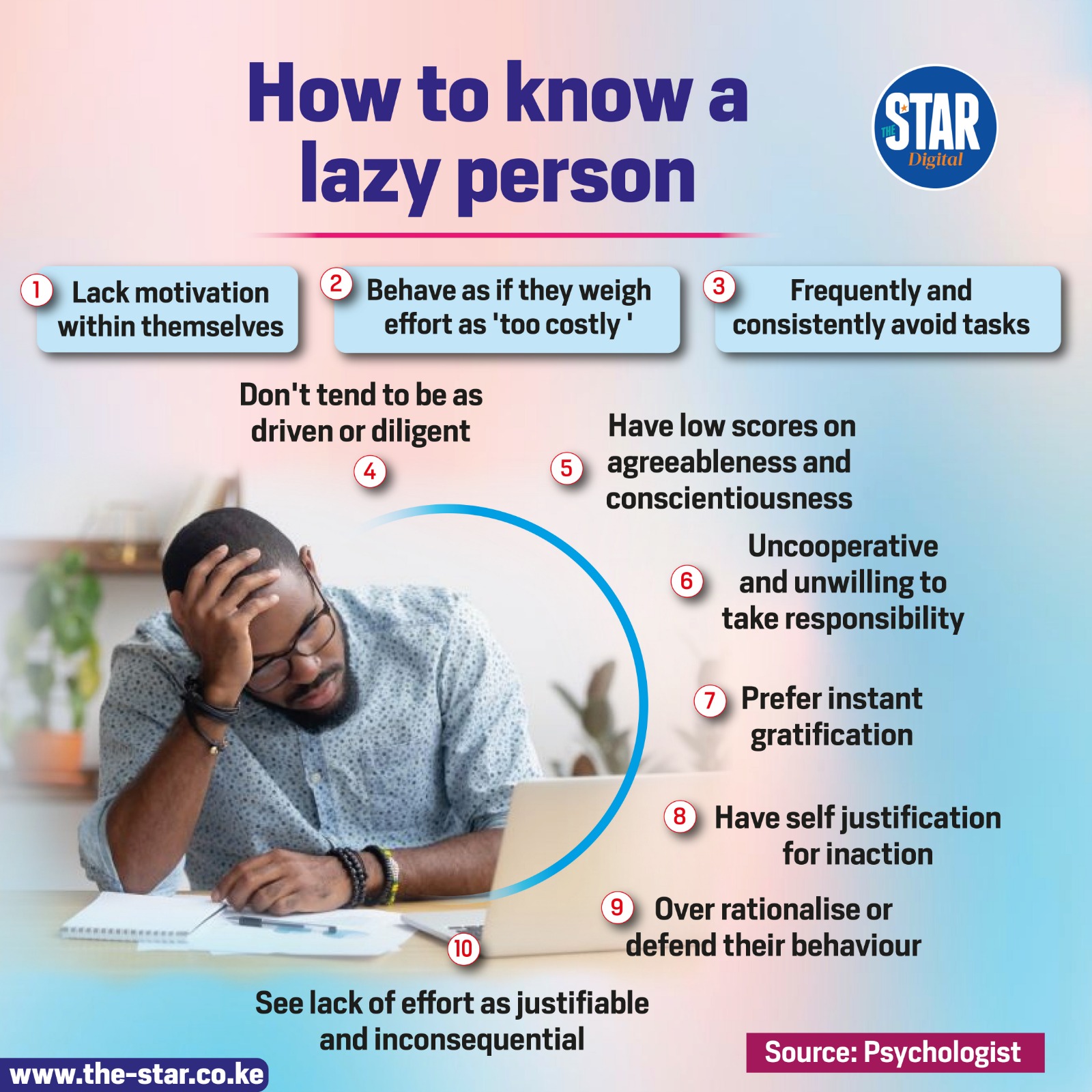

Ally (not his real name) always finds a way to avoid doing any work, whether it's skipping out on chores or finding excuses to miss deadlines, and seems to thrive on doing the bare minimum.
This behaviour, while amusing at times, raises questions about what genuine laziness looks like and how it can be identified.
Research shows genuine laziness often manifests in several key behaviours.
One major indicator is a lack of motivation to engage in tasks that require effort.
Studies indicate that individuals who exhibit this trait may struggle with goal-setting and often procrastinate, leading to missed opportunities and unfulfilled potential.
Additionally, they may frequently come up with excuses to avoid responsibilities, which can hinder personal and professional growth.
Another aspect of genuine laziness is the tendency to prioritise immediate gratification over long-term benefits.
This can lead to a cycle of short-term pleasure—like binge-watching shows or scrolling through social media—while neglecting important tasks.
Ultimately, recognising genuine laziness involves observing patterns in behaviour and understanding the underlying motivations.
By identifying these traits, individuals can work towards fostering a more proactive mindset and breaking free from the cycle of avoidance.
WHAT A PSYCHOLOGIST SAYS
Carol Joy, a psychologist, said it is easy to name disengagement, boredom, exhaustion and demotivation as laziness.
“Laziness can often and mostly be defined by our long-term actions, responses, and performance,” Carol said.
“Unlike demotivation that fades away especially when we make conscious effort to find new motivators and try new things laziness on the other hand is constant, and if a person doesn't become intentional about changing for the better they are likely to waste away and become miserable.”
The expert said so much goes into the realisation that a person is genuinely lazy and usually, it might take time to figure out.
HOW DOES IT LOOK LIKE BEING A LAZY PERSON
The psychologist said lazy people lack motivation from within themselves; hence, they struggle with finding their purpose and the drive to pursue it.
She said laziness is a result of habitual avoidance strategies, which could mean lazy people prefer instant gratification over tasks that require sustainable effort.
“Laziness may stem from an energy conservation mindset—an overwhelming desire to conserve physical and mental energy, even when the situation calls for effort.”
Carol said such people behave in a manner as if they’re subconsciously weighing effort as ‘too costly’ regardless of benefits.
“Laziness shows up as self-justification for inaction, and lazy people may often rationalise or defend their behaviour, they may not feel inclined to make excuses or even apologise for their lack of effort, seeing it as justifiable or inconsequential,” she said.
WHAT ARE THE POINTERS FOR A LAZY PERSON?
The expert said to identify laziness, check the consistency of behaviour as true laziness is often marked by a long-term pattern of avoiding effort across various contexts.
“If someone frequently and consistently avoids tasks even when there are rewards or clear benefits, it might indicate genuine laziness,” Carol said.
“From a personality perspective, low scores on agreeableness and conscientiousness, which evaluate cooperativeness and willingness to put effort, responsibility, and work ethic: in personality assessments, are often indicators.”
The psychologist said lazy people might score lower in conscientiousness, as they don't tend to be as driven or diligent.
She said it is important to note that procrastination stems from fear of failure while laziness doesn't stem from emotional blocks.
WHAT TO DO FOR CHANGE IF YOU ARE A LAZY PERSON
The expert said lazy people aren't hopeless; in fact, they can implement certain cultures in their lives to help them be better:
Carol said such people can start on tiny habits and build momentum, focus on rewards and consequences; award their efforts and give consequences for work evaded
She said they can visualise the reward they get from putting effort on a long-term basis and emphasize energy management by creating schedules with breaks
“A lazy person should develop a consistent routine to avoid the resistance to starting tasks,” she said.
She said lazy people can break the self-justification cycle by implementing regular self-awareness and discipline self-check-ins.
“A lazy person can change their lives by shifting their identity mindset by encouraging a new self-image that identifies as a person who makes small meaningful actions to promote growth.”
Carol added that a lazy person can change as long as they are open to seeing the dysfunctional culture they've bought into themselves.
“Acceptance is the first step to change.”






![[PHOTOS] Guardian Angel bus catches fire in Kikuyu](/_next/image?url=https%3A%2F%2Fcdn.radioafrica.digital%2Fimage%2F2025%2F04%2F58287f0a-f201-4a78-87f0-6f147ad8ba8a.jpg&w=3840&q=100)




